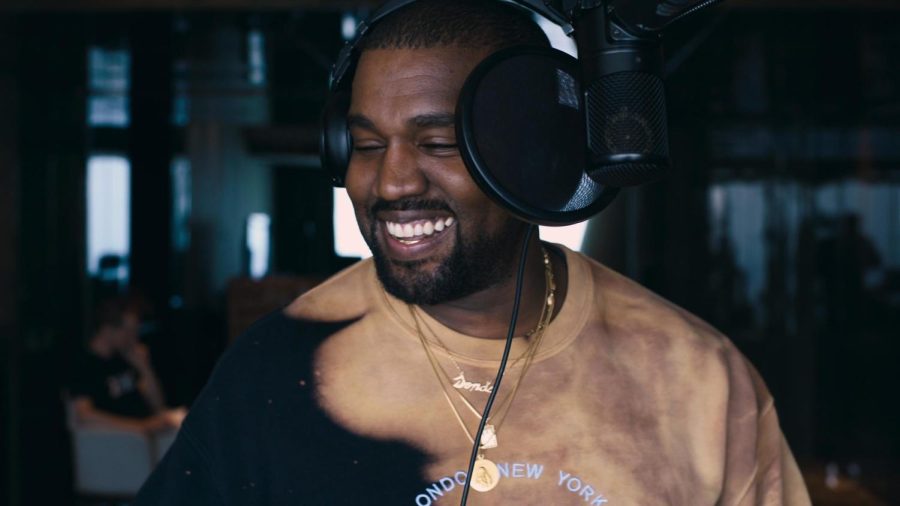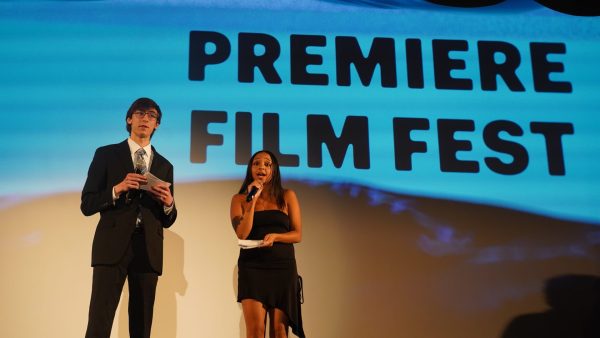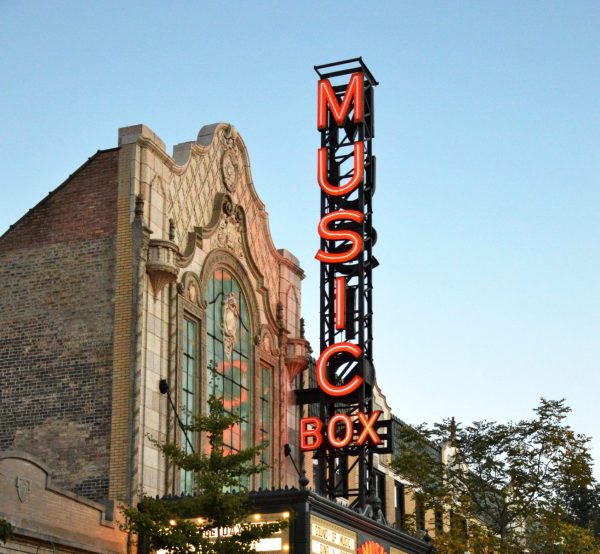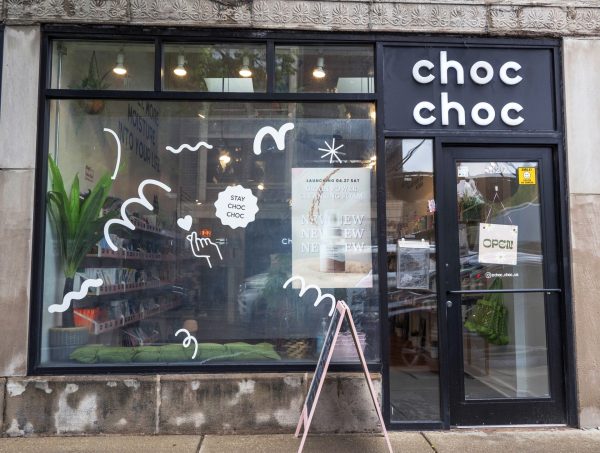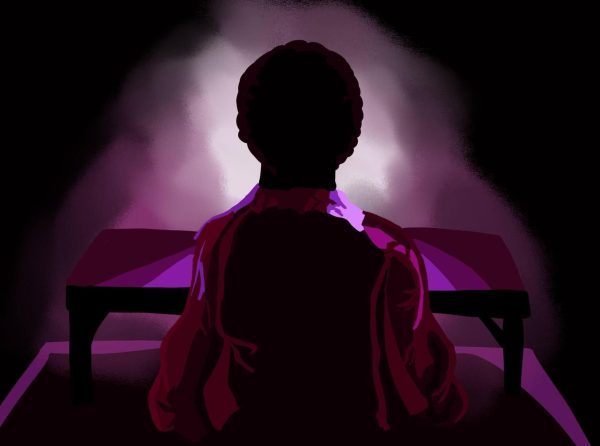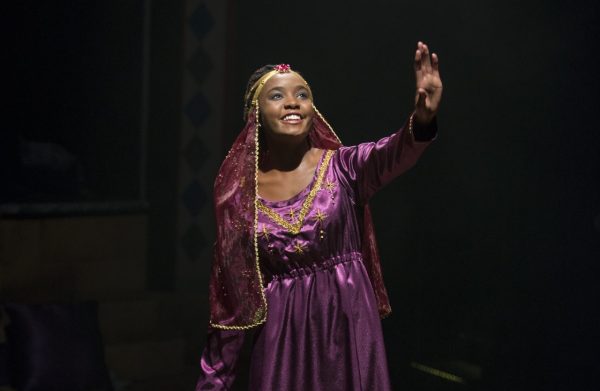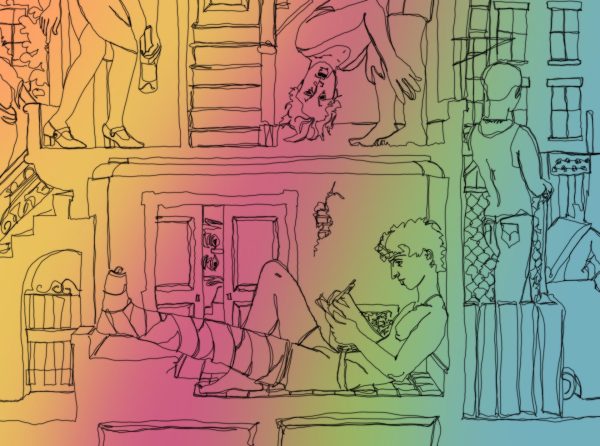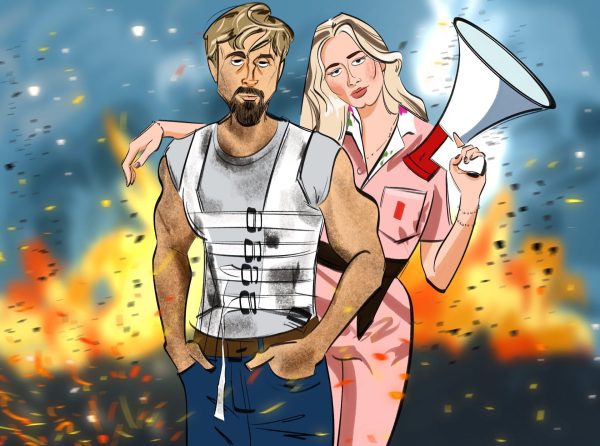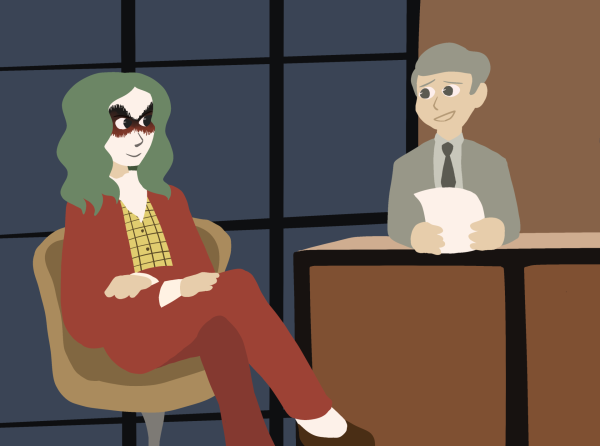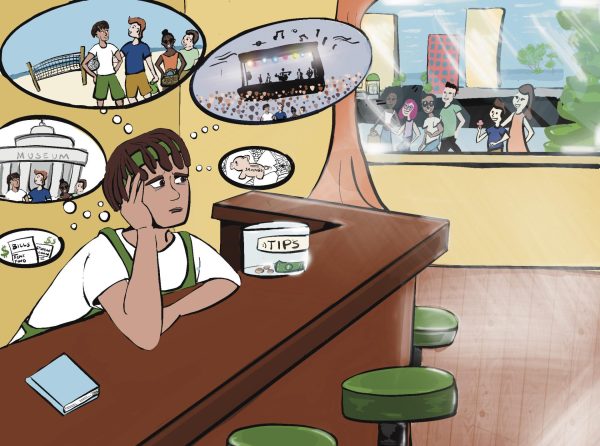Kanye’s documentary gives insight into his “jeen-yuhs” creative process throughout his career
Kanye West in his own documentary titled “jeen-yuhs: A Kanye Trilogy” about his life.
“jeen-yuhs: A Kanye Trilogy” follows the almost 30-year career of Kanye West, a rapper, producer and newfound fashion mogul. This three-part documentary captures the intricacies of West both personally and professionally. Naturally, the audience sees West evolve from his humble beginnings to his latest successes and controversies.
The first installment of the documentary, “act i: VISION,” follows a young Kanye as he travels to New York to establish his career. The episode begins with various aspects of Kanye’s entire career edited quickly together, with both video and audio overlapping. The narrator, Kanye’s close friend Coodie, then says “every great story begins with a vision.”
A popular moment that made its rounds on social media shows Kanye playing “All Falls Down” for people at Roc-A-Fella Records. He walks into the record label and plays the song for various people, one being Carline Balan who was an executive assistant at the time. People didn’t give the song the time of day and no one did anything with the song.
This becomes a consistent theme throughout the documentary: Kanye knew he had something special, he just needed to convince other people of that. Roc-A-Fella eventually signed him, but they respected him more as a producer than as a rapper.
The second installment, “act ii: PURPOSE,” follows Kanye when his career starts building up. This installment sees the initial hit of fame as he made a music video for “Through The Wire,” which led to Roc-A-Fella finally getting a release date for Kanye’s debut album, “The College Debut.” Roc-A-Fella didn’t help whatsoever with the video as they didn’t release Kanye’s budget — at the music video release party, Kanye explained that he had to pay $33 thousand for the video out of his own pocket.
Both the first and second installments of “jeen-yuhs” follow a similar theme: Kanye desperately trying to jumpstart his career. Not only did he hustle to get his album released with little to no help from his label, but he also wanted to represent Chicago. Coodie and his friend Chike started “Channel Zero,” a show based in Chicago that gained popularity in the late 90s and early 2000s. In one segment of the show, Da Brat says that rap isn’t just the east and west coasts. The overall sentiment was clear: Chicago needed to be put on the map in regards to the rap scene.
The last segment, “act iii: AWAKENING,” deals with the most recent aspects of Kanye’s life. At this point in the documentary, Coodie and Kanye are not as close considering they went eight years without speaking. When the second installment ended, Kanye didn’t bring Coodie along on a tour.
Through the ups and downs of Kanye’s career, the documentary does well with humanizing the rapper. The documentary features the media coverage of Kanye attempting to run for president in 2020, some outlets said that he may have been experiencing a bipolar episode during a rally in South Carolina.
People say they want the “old Kanye” back, but Coodie makes the argument that the way Kanye has been acting may be another aspect of Kanye’s personality. With that statement, the audience can understand that Kanye isn’t one-dimensional.
When people say they want the “old Kanye,” they refer to the times Kanye was more humble and socially aware. One such moment came during Hurricane Katrina when Kanye boldly stated that President George Bush didn’t like Black people.
The documentary also touches on Kanye’s mental health struggles. We see the various outbursts at his concerts as well as his presidential rallies. We see all sides of Kanye in “jeen-yuhs” and it doesn’t shy away from the troubling times in both his life and career. Understandably, his divorce and relationship with Kim Kardashian didn’t receive much screen time as that situation continues through the court system.
The documentary has a home video vibe, especially in the first and second installments. The older cameras and quality adds to the nostalgia of Kanye’s earlier career. The shift from the older, handheld camera from the early 2000s to the newer camera of the later 2010s gives the documentary the proper evolution.
After eight years of not speaking to or seeing Kanye, Coodie says that he knows Kanye but he hasn’t met “Yeezy.” Not only does that distinction allow for a multi-faceted Kanye, but it speaks to the evolution of Kanye’s career.
“jeen-yuhs” allows for important insight into Kanye’s upbringing in the music industry as well as the most iconic moments of his career. The documentary allows for the understanding of a person that may feel misunderstood.


